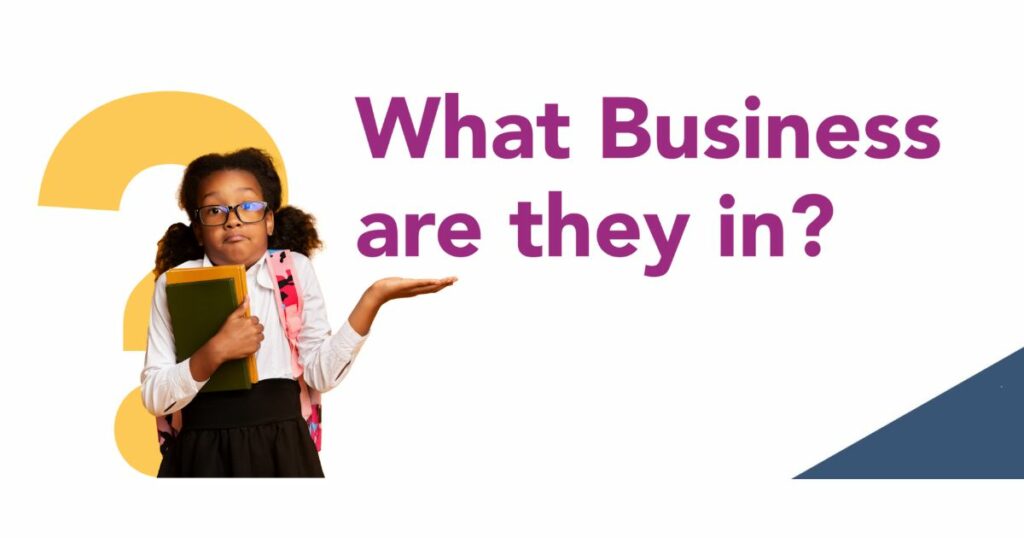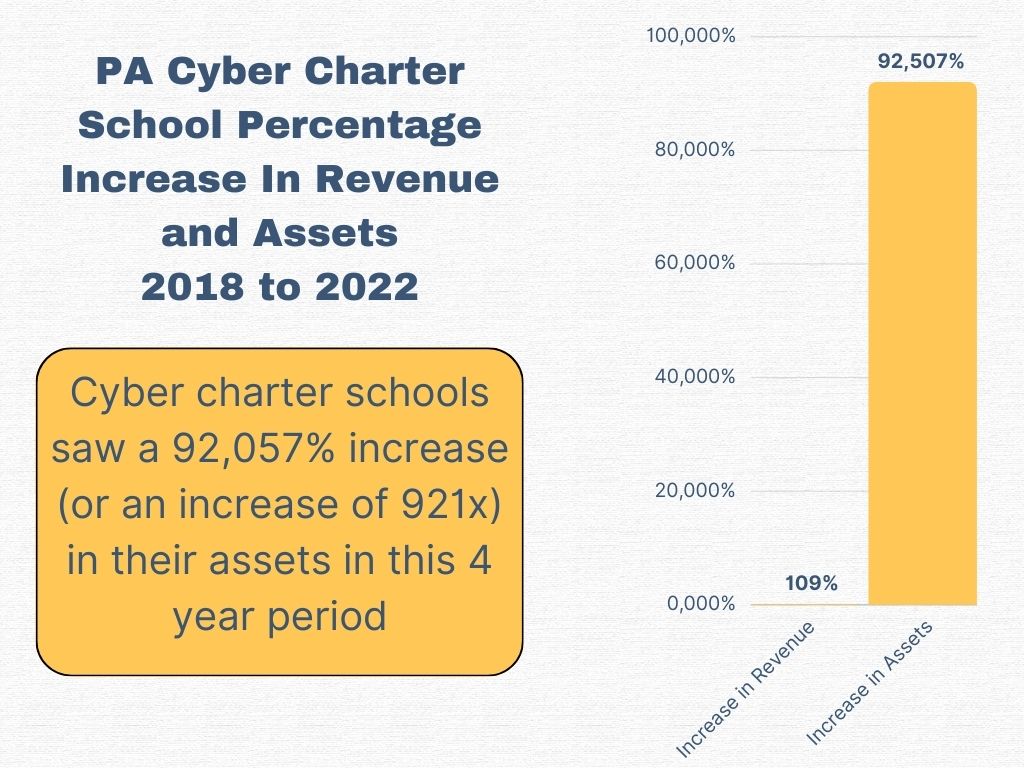On Thursday, May 16, we issued a report detailing the egregious financial landscape of Pennsylvania’s largest cyber charter schools. We have long made the case that Pennsylvania cyber charter schools are awash in excess funding that they waste. Our report shows that over the past five years, Pennsylvania’s largest cyber charter schools have packed hundreds of millions of dollars into asset hoards and continue to waste tens of millions of dollars each year on advertising.
Click HERE to tell your state lawmakers to support cyber charter school funding reforms THIS YEAR. Pennsylvanians’ property taxes should be invested in educating students, not wasted on advertising, gift cards, and lucrative contracts or packed into cyber charter asset hoards.

In our report, “Pennsylvania’s Cyber Charter Schools Enjoy a 92,000% increase in asset hoards from 2018-2022, purchase dozens of properties, and waste more than $21 million on advertising and gift cards in a single year,” we examined Form 990s (federal tax returns) and Annual Financial Reports (AFRs) spanning fiscal years 2018-2022 for Pennsylvania’s four largest cyber charter schools–PA Cyber, REACH Cyber Charter School, Commonwealth Charter Academy, and Agora Cyber Charter School.
Click HERE to read the report.
Here are our key findings:
Pennsylvania’s four largest cyber charter schools reported a staggering 92,000% increase (or an increase of 921x) in their assets from 2018-2022.
– In 2018, Pennsylvania’s four largest cyber charter schools reported a total of $566,858 in the net assets or fund balance category on their Form 990s.
– In 2022, they reported net assets or fund balance of $486 million.

An inventory of properties demonstrates that Commonwealth Charter Academy is amassing a real estate empire across the commonwealth that is funded by property taxes paid by homeowners in school districts that cannot afford to fix and maintain their own buildings.
– Our report details 35 locations that CCA owns and occupies and nine others that they lease. CCA has purchased 29 buildings since 2018 (See full report).
– CCA paid a total of $88.7 million for the properties it currently owns. Those properties have assessed values totaling $43.1 million.

Additional evidence of excess funding and waste is demonstrated by more than 1800 pages of invoices acquired through Right to Know requests that show cyber charters spent more than $21 million on advertising and gift cards during the 2022-2023 school year.

Click HERE to tell your state lawmakers to support cyber charter school funding reforms THIS YEAR.
Our Recommendations
- The General Assembly must enact the proposed flat tuition rate of $8000 for each regular education student who attends a cyber charter school to reduce district payments to cybers by $262 million annually. The General Assembly must also enact reforms that will align special education tuition payments with cybers’ actual cost of providing students with disabilities the services they need.
- The Auditor General must conduct financial audits of every cyber charter school. Forensic audits must be conducted for the four largest cyber charters that are the focus of this report to determine whether their expenditures and reporting have complied with state law.
- State lawmakers must enact legislation that would return the proceeds of the sale of any charter school properties and other assets to taxpayers.
- The Pennsylvania Department of Education, which authorizes cyber charters to operate in the commonwealth, must begin the process of renewing the charters of schools that are operating with expired charters and forensic audits must be a condition of charter renewal. The legislature must enact a moratorium on the approval of new cyber charter schools until all current cyber schools have valid charters.
State lawmakers must finally take steps to end the excessive profiteering that is occurring in the cyber charter sector.
State lawmakers must finally take action to support a rational cyber charter funding system that aligns tuition payments to the actual cost of educating students online. This will mean less waste and hoarding by cyber charters, more resources in brick-and-mortar students’ classrooms, and less pressure on districts to raise property taxes to fund bloated tuition payments.
The legislature’s failure to take action on this issue puts at risk our public schools’ potential to deliver a quality education for all.

Recent Comments